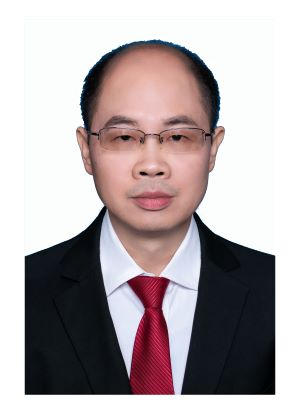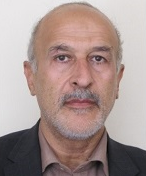
Prof. Marc A. Rosen, Ontario Tech University, Canada

Biography: Dr. Marc A. Rosen is a Professor of Mechanical and Manufacturing Engineering at Ontario Tech University (formally University of Ontario Institute of Technology) in Oshawa, Canada, where he served as founding Dean of the Faculty of Engineering and Applied Science. Dr. Rosen has served as President of the Engineering Institute of Canada and of the Canadian Society for Mechanical Engineering. He has acted in many professional capacities, including founding Editor-in-Chief of the journal Sustainability and a Board member of Oshawa Power. Dr. Rosen is an active teacher and researcher in thermodynamics, energy technology, sustainable energy, sustainability and the environmental impact. Much of his research has been carried out for industry. Dr. Rosen has worked for such organizations as Imatra Power Company in Finland, Argonne National Laboratory, the Institute for Hydrogen Systems near Toronto, and Toronto Metropolitan University, where he served as Chair the Department of Mechanical, Aerospace and Industrial Engineering. Dr. Rosen has received numerous awards and honours, and is a Fellow of the Royal Society of Canada, the Engineering Institute of Canada, the Canadian Academy of Engineering, the Canadian Society for Mechanical Engineering, and the American Society of Mechanical Engineers.
Speech Title: Exergy Methods for Environmental Stewardship, Protection and Management
Abstract: The use of exergy methods is described as tools for addressing environmental impacts, so the benefits can be appreciated more fully and attained in practice. Exergy can be used to understand environmental impacts and climate change measures and to assess and improve energy systems. Exergy methods also can help better understand the benefits of utilizing sustainable energy by providing more useful and meaningful information than energy methods provide. Exergy clearly identifies efficiency improvements and reductions in wastes and environmental impacts attributable to sustainable energy. Exergy methods thereby allow rational statements of the potential for improvement of any system, based on the laws of thermodynamics. Exergy can also identify better than energy the environmental benefits and economics of energy technologies. Exergy should be applied in addressing environmental impacts, as a complementary tool to more conventional methods.
 | Prof. Hamid Gualous, University of Caen Normandie, France |
Biography: Hamid Gualous (Member, IEEE) received the Ph.D. degree in electrical engineering from the University of Paris XI (Paris-Saclay), France, in 1994. From 1996 to 2009, he was an Associate Professor at the University of Franche-Comte, France. He is currently a Full Professor with the University of Caen Normandy and the Head of the Energy Storage Systems Team. His scholarly work has resulted in more than 320 journals and conference publications leading to more than 8450 citations. His main research interests include energy storage devices, marine renewable energies, fuel cell and hydrogen, smart grids and energy management systems.
Speech Title: To be updated
 | Prof. Raffaele Carli, Polytechnic of Bari, Italy |
Biography: Raffaele Carli received his Laurea degree in Electronic Engineering with honours in 2002 and his PhD in Electrical and Information Engineering in 2016, both from Politecnico di Bari, Italy. From 2003 to 2004, he was a Reserve Officer with Italian Navy. From 2004 to 2012, he worked as System and Control Engineer and Technical Manager for a multinational company in the space and defense sector.
Currently, he is an Associate Professor in Systems and Control Engineering at Politecnico di Bari, where he is the technical lead for the Decision and Control Laboratory (coordinated by prof. Mariagrazia Dotoli) within the Department of Electric and Information Engineering (http://dclab.poliba.it/). He has held national qualifications as a Full Professor since 2023. Since 2022, he has served as Vice-Coordinator of the National PhD program in Autonomous Systems (http://dausy.poliba.it/phd/).
An IEEE Senior Member since 2022, he currently serves as the Mentorship Subcommittee Chair of the Membership and Student Activities Committee within the IEEE SMCS for the 2023-2024 and 2025-2026 terms. Additionally, he currently serves as the Secretary of the IEEE Italy Section Chapter CS23 of the CSS for the 2025-2026 term.
He has authored over 120 printed international publications (Google Scholar profile: https://scholar.google.it/citations?user=OvXT8Y0AAAAJ&hl=en). His research focuses on developing decision and control techniques for modeling, optimizing, managing, and controlling complex, large-scale systems, particularly in smart frameworks such as industry and energy. He received the 2024 IEEE Italy Section SMCS Chapter Award for Excellence in Early Career Research.
Speech Title: To be updated
 | Prof. Siyue Li, Wuhan Institute of Technology, China(Vice Dean, H-index:42) |
Biography: Prof. Siyue Li is a Principal Scientist in freshwater carbon biogeochemical cycling and aquatic carbon emission in relation to watershed pollution. He is the vice dean of School of Environmental Ecology and Biological Engineering, Wuhan Institute of Technology, Wuhan, China. He leads an innovative institute of Yangtze Water Environment and Ecological Security focusing on inland water carbon emission and ecosystem carbon pool, as well as changing water environment and pollution control. He is a member of several national societies and professional entities in China. He is the World’s Top 2% cited research scientists 2020, 2021, 2022, 2023 and 2024 in the field of Environmental Sciences. He has more than 130 publications at SCI-indexed journals, with 1 hot paper and 7 highly-cited papers. He also served as guest editors of special issues in the Environmental Research, Water and Frontiers in Environmental Science.
Speech Title: To be updated
 | Prof. Javad A. Esfahani, Ferdowsi university of Mashhad, Iran |
Biography: Javad Abolfazli Esfahani(Iran 1960), PhD in Mechanical Engineering from the University of New Brunswick (UNB), Canada in 1997, is a professor in Mechanical Engineering, Energy conversion, at Ferdowsi University of Mashhad, Iran.To date, he has published 5 books/chapters, 160 articles in peer reviewed international journals and more than 100 conference papers. He has worked on theoretical and numerical heat and mass transfer such as drying, solar desalination, condensing boiler, and micro/nano-fluidics. Dr. Esfahani is a member of Iranian combustion Institute and Iraniansociety of mechanical Engineering,Director of Center of Excellence in Energy Management, Certified by National Iranian Oil Company (NIOC), Centre of excellence in modeling and control of system, Ferdowsi university of Mashhad, Centre of excellence in energy conversion, Sharif university of Technology,and editorial boards of), IRECHE and Journal of Heat and Mass Transfer Research. He obtains 14 awards for books, research and supervisor of thesis from ISME, Ferdowsi festival, and Iranian combustion society. He has supervised 9 PhD and 90 MSc theses. More information can find at http://abolfazl.profcms.um.ac.ir/.
Speech Title: To be updated
 | Prof. Hossein Kazemi, Gorgan University of Agricultural Sciences and Natural Resources, Iran |
Biography: Dr. Hossein Kazemi, Full Professor in Agroecology, Department of Horticulture, Gorgan University of Agricultural Sciences and Natural Resources (GUASNR), Gorgan, Iran. Research interests: Ecosystem services assessment; Sustainable agriculture; Assessment of agriculture effects on environment; GIS and RS applications in agroecology; Landscape ecology.
Dr. Hossein Kazemi has been recognized as one of the world's foremost scientists by the ScholarGPS International Institute. ScholarGPS evaluated scientific publications from the past five years on a global scale. The strong publication record, the impact of work and the notable quality of scholarly contributions of Dr. Kazemi has placed him in the top 0.5% of all scholars worldwide.In the specialized domain of Geographic Information Systems (GIS), he holds the 26th rank, while in the field of spatial analysis, he is ranked 57th. ScholarGPS is a California-based company that applies artificial intelligence, data mining, machine learning, and other data science techniques to its massive database of over 200 million publications and 3 billion citations to rank over 30 million scholars and 55,000 institutions worldwide.
Speech Title: To be updated
 | Prof. DARSHIT UPADHYAY, Nirma University, India |
Biography: Dr. Darshit S Upadhyay is working as Assistant Professor in Mechanical Engineering Department since 2012. He has more than 15 SCI publications and presented more than 15 conference papers. He has received various awards and research projects. He received SERB and ACU travel grants to visit Canada and USA to present the paper. Dr. Upadhyay is the reviewer of the international refereed journals. His research interests include Biomass Gasification, Energy Conversion, and Renewable Energy.
Speech Title: To be updated
